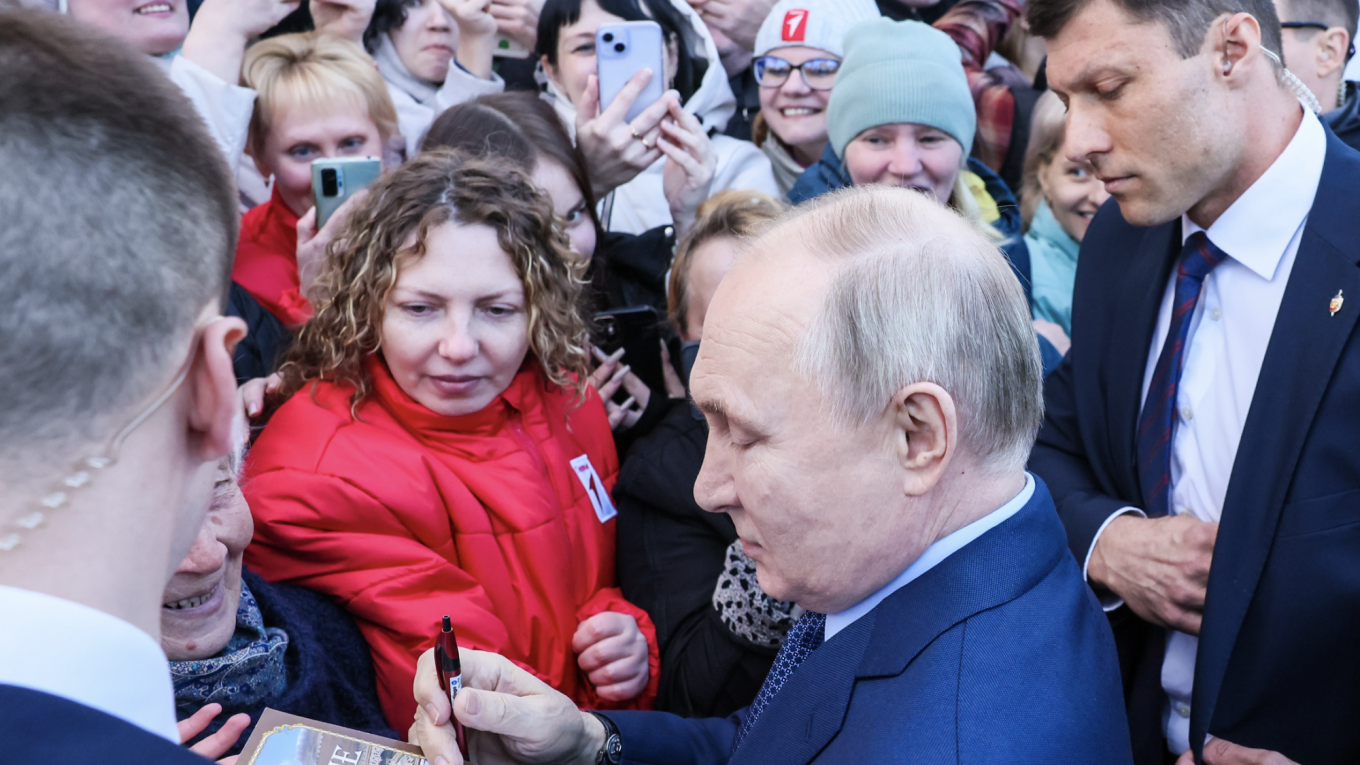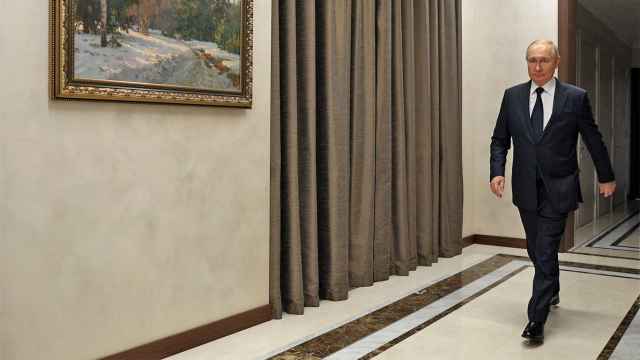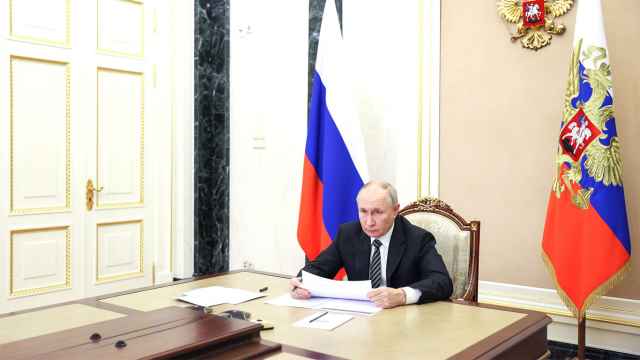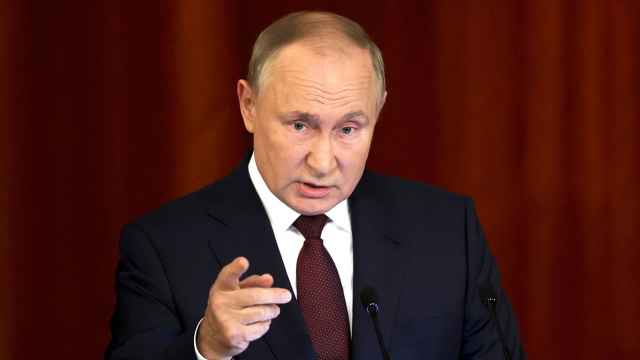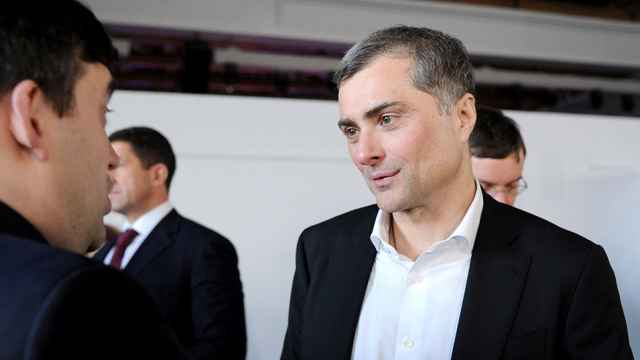Five days since the deadliest attack on Russian soil since 2004, President Vladimir Putin has still not visited the site of the attack in Moscow or met with the victims’ families.
After repeatedly implicating Ukraine and the West in the attack despite the Islamic State claiming responsibility, Putin on Wednesday made a surprise visit to Torzhok, a small town in the Tver region, where a pre-assembled crowd of adoring locals greeted him.
In televised footage, a crowd of about 100 men, women and children waited behind police barricades for Putin’s motorcade to arrive. The crowd was shown bursting into applause as he emerged from the presidential limousine to approach them.
Putin was shown signing an elderly woman’s book with himself on the cover and kissing a 10-year-old boy while surrounded by bodyguards.
"I've been waiting for you for 20 years," a woman's voice is heard saying in a live broadcast from the scene.
At least 140 people were killed and 360 wounded by a group of gunmen at Moscow’s Crocus City Hall on Friday in a major blunder for Russia’s powerful security apparatus.
Amid the fallout from the attack, the Russian president turned to his tried-and-true damage control tactic of staging a spontaneous meeting with ordinary citizens far from Moscow.
"The terrorist attack on Crocus, the lines for Nadezhdin and the mountain of flowers on Navalny's grave — all of this shows the president in an unfavorable light," a government official told The Moscow Times, speaking on condition of anonymity because he is not authorized to speak to the press.
“This visit aims to show that the real Russian nation loves Putin,” the official said.
The crowd in Torzhok had waited for Putin’s arrival for hours, the local online news outlet Perviy Tverskoy reported.
Muscular men in civilian clothes who resembled undercover security officers were visible in the crowd.
Putin later visited an ethnographic museum and held a meeting where he was presented with a gift and mused about "true patriotism."
While Putin's motorcade arrived in Torzhok in the evening, preparations for his visit had started at least a day in advance.
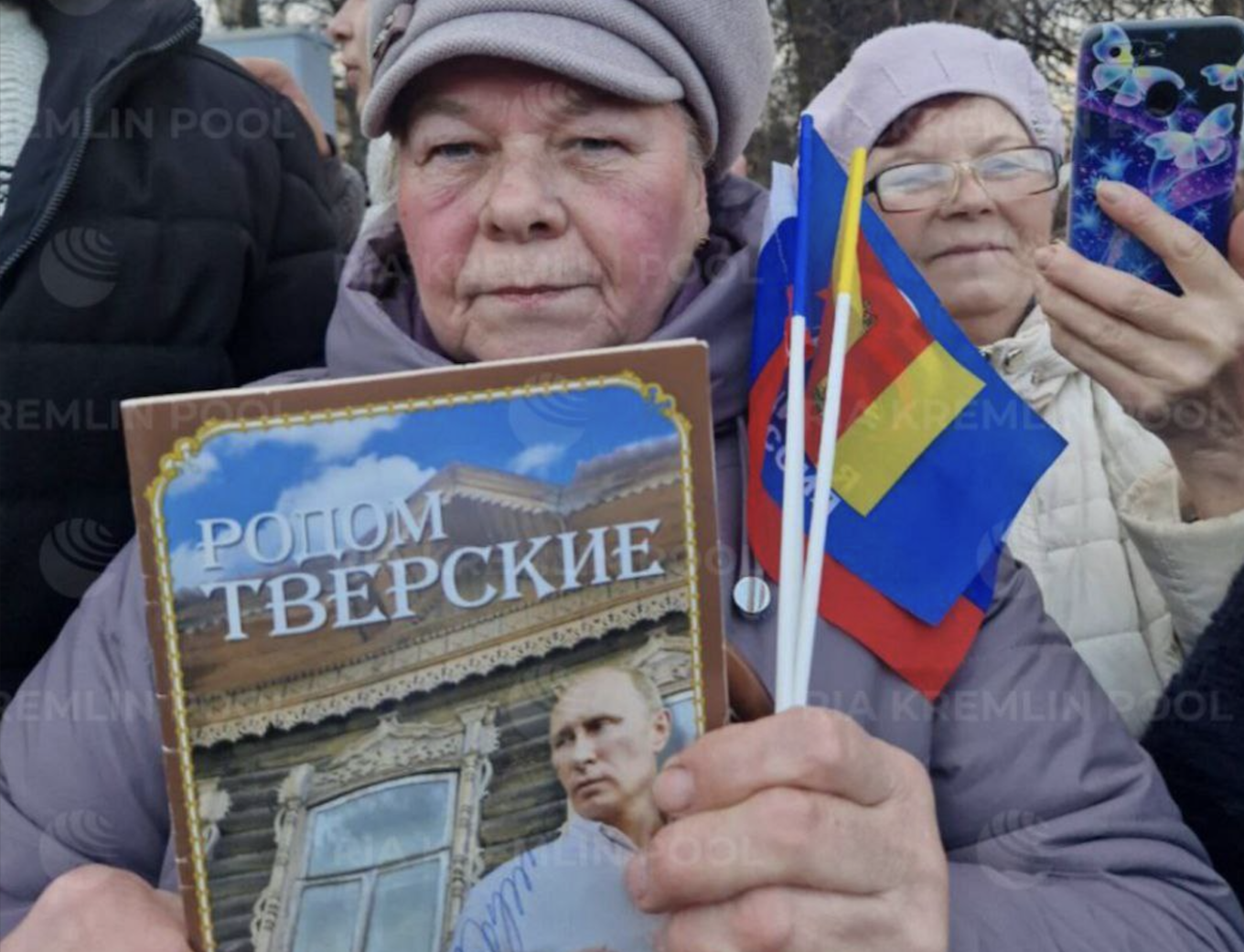
Authorities covered up run-down buildings in the town center with cloth and removed speed bumps from the roads, according to Perviy Tverskoy.
Some two dozen traffic police officers were photographed on duty on the town’s main road.
The staged ovation in Torzhok came after thousands of Russians laid flowers in memory of opposition politician Alexei Navalny, Putin’s most vocal foe who died in a penal colony in February — and just days after the Moscow attack, despite the victims’ funerals not yet taking place.
During his meeting at the ethnographic museum, Putin himself suddenly told participants that his visit had allegedly been planned earlier, but that it had to be postponed because of the attack in Moscow.
The Kremlin has repeatedly set up staged interactions with civilians during visits to Russia’s regions following events that could trigger public anger.
This is one version of the Kremlin's positive spin strategy which The Moscow Times has previously reported.
After Russia’s failed capture of Kyiv, subsequent retreat from Kherson and reports of high military casualties in the invasion of Ukraine, the Kremlin organized a meeting between Putin and soldiers’ mothers who did not criticize the president in December 2022.
Six months later, after the Wagner Group mutiny sparked Russia’s biggest domestic security crisis in decades, Putin visited the republic of Dagestan, meeting an assembled crowd that greeted him cheerfully and professed their love.
Putin was shown taking selfies with members of the crowd despite the Kremlin’s quarantine requirement for anyone meeting with him.
A few months later in Dagestan, amid the outbreak of the Israel-Hamas war, a violent mob stormed the local airport in search of alleged Israeli refugees.
Like the Crocus City Hall attack, Putin also accused Western and Ukrainian intelligence services of orchestrating the mob.
A Message from The Moscow Times:
Dear readers,
We are facing unprecedented challenges. Russia's Prosecutor General's Office has designated The Moscow Times as an "undesirable" organization, criminalizing our work and putting our staff at risk of prosecution. This follows our earlier unjust labeling as a "foreign agent."
These actions are direct attempts to silence independent journalism in Russia. The authorities claim our work "discredits the decisions of the Russian leadership." We see things differently: we strive to provide accurate, unbiased reporting on Russia.
We, the journalists of The Moscow Times, refuse to be silenced. But to continue our work, we need your help.
Your support, no matter how small, makes a world of difference. If you can, please support us monthly starting from just $2. It's quick to set up, and every contribution makes a significant impact.
By supporting The Moscow Times, you're defending open, independent journalism in the face of repression. Thank you for standing with us.
Remind me later.



